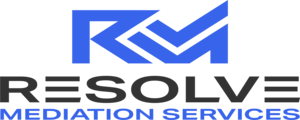
Debt collection is a critical aspect of financial management that involves the retrieval of outstanding debts owed by individuals or businesses to creditors or service providers. It plays a vital role in maintaining the financial health of businesses and ensuring the sustainability of lending institutions. In this comprehensive guide, we’ll delve into the intricacies of debt collection, its importance, processes involved, legal considerations, and best practices.
Importance of Debt Collection:
Effective debt collection is essential for the smooth functioning of businesses and financial institutions. Here are some key reasons why debt collection is crucial:
- Maintaining Cash Flow: Unpaid debts can severely impact a company’s cash flow, hindering its ability to meet operational expenses, invest in growth, or pay off its own debts.
- Minimizing Losses: Timely debt collection helps minimize losses incurred due to non-payment, allowing businesses to recover as much of the outstanding debt as possible.
- Preserving Relationships: While debt collection may seem adversarial, handling it professionally can help preserve relationships with clients or customers, potentially retaining them for future business.
- Compliance and Legal Obligations: Adhering to debt collection laws and regulations is crucial to avoid legal consequences and maintain the reputation of the business.
Processes Involved in Debt Collection:
Effective debt collection involves several key processes, each aimed at maximizing the chances of recovering outstanding debts:
- Assessment and Documentation: The first step in debt collection is to assess the outstanding debts and gather relevant documentation, including invoices, contracts, and communication records.
- Communication: Establishing clear lines of communication with debtors is essential. This may involve sending reminders, emails, letters, or making phone calls to remind them of their outstanding obligations.
- Negotiation: In some cases, debtors may be unable to pay the full amount owed. Negotiation skills come into play here, as creditors may need to work out alternative payment plans or settlements that are acceptable to both parties.
- Legal Action: If all attempts at amicable resolution fail, creditors may resort to legal action, such as filing a lawsuit or hiring a debt collection agency, to recover the debt through legal means.
- Enforcement: In cases where legal action is successful, enforcement measures such as garnishing wages or placing liens on property may be employed to compel debtors to repay their debts.
Examples of Debt Collection:
- Consumer Debt: Consumer debt collection involves pursuing unpaid debts owed by individuals for personal expenses such as credit card bills, medical bills, or utility payments.Example: A credit card company may engage in debt collection efforts to recover outstanding balances from cardholders who have fallen behind on their payments.
- Commercial Debt: Commercial debt collection entails chasing unpaid invoices or loans owed by businesses to other businesses or service providers.Example: A supplier may engage in debt collection to recover payment from a business client that has failed to pay for goods or services provided on credit terms.
- Medical Debt: Medical debt collection involves pursuing unpaid medical bills accrued by individuals for healthcare services received.Example: A hospital or healthcare provider may employ debt collection practices to recover outstanding medical bills from patients who have not settled their accounts.
- Student Loan Debt: Student loan debt collection revolves around the pursuit of unpaid student loans by borrowers who have defaulted on their repayment obligations.Example: A student loan servicer may undertake debt collection activities to recover defaulted student loan payments from borrowers who have failed to make timely repayments.
Legal Considerations:
Debt collection is subject to a myriad of laws and regulations designed to protect the rights of both debtors and creditors. Some key legal considerations include:
- Fair Debt Collection Practices Act (FDCPA): This federal law sets guidelines for how debt collectors may legally conduct their activities and prohibits abusive, deceptive, or unfair debt collection practices.
- State Laws: In addition to federal laws like the FDCPA, debt collection practices are also regulated at the state level, with each state having its own set of rules and regulations governing debt collection activities.
- Documentation: Maintaining accurate and detailed records of debt collection activities is crucial for compliance with legal requirements and may be necessary as evidence in case of disputes or legal proceedings.
- Debtor Rights: Debtors have certain rights under the law, including the right to request validation of the debt, dispute inaccurate information, and be free from harassment or abusive tactics by debt collectors.
Best Practices in Debt Collection:
To ensure ethical and effective debt collection, creditors and debt collectors should adhere to the following best practices:
- Professionalism: Conduct debt collection activities in a professional and courteous manner, maintaining respect for the dignity and rights of the debtor.
- Transparency: Clearly communicate with debtors regarding their obligations, payment options, and any consequences of non-payment.
- Compliance: Familiarize yourself with applicable laws and regulations governing debt collection practices and ensure compliance at all times.
- Documentation: Keep detailed records of all communication and activities related to debt collection, including dates, times, and content of conversations or correspondence.
- Flexibility: Be willing to work with debtors to find mutually agreeable solutions to repayment, taking into account their financial circumstances and ability to pay.
In conclusion, debt collection is an integral part of financial management that involves the retrieval of outstanding debts owed by individuals or businesses. By following best practices, adhering to legal requirements, and maintaining professionalism, creditors and debt collectors can effectively recover unpaid debts while preserving relationships and upholding the integrity of the debt collection process.








Hi, this is a comment.
To get started with moderating, editing, and deleting comments, please visit the Comments screen in the dashboard.
Commenter avatars come from Gravatar.